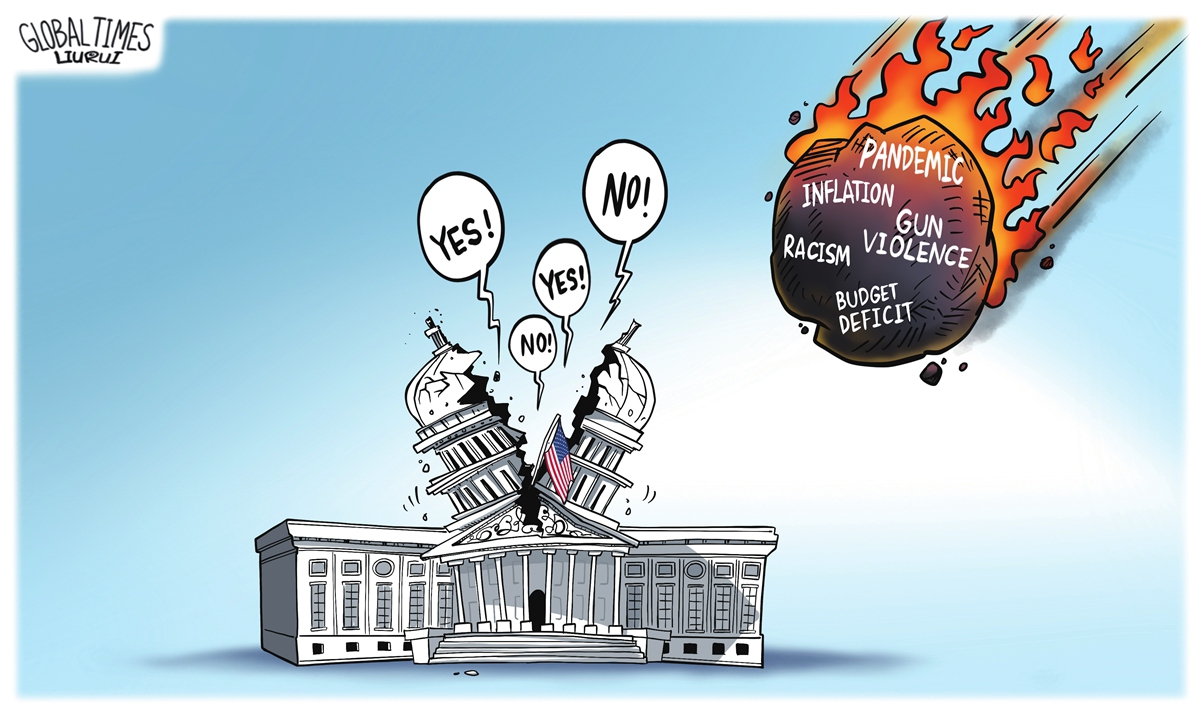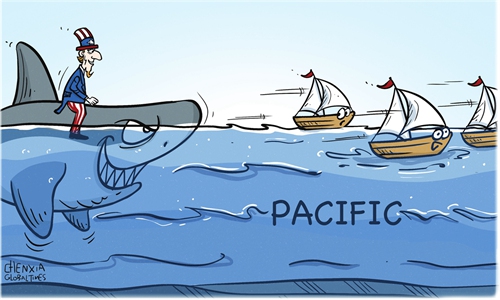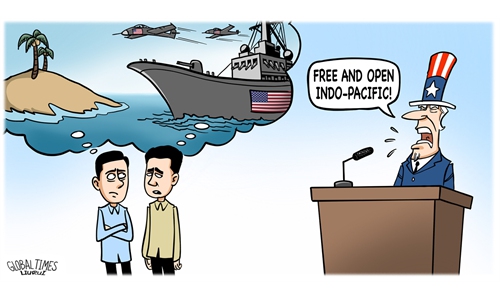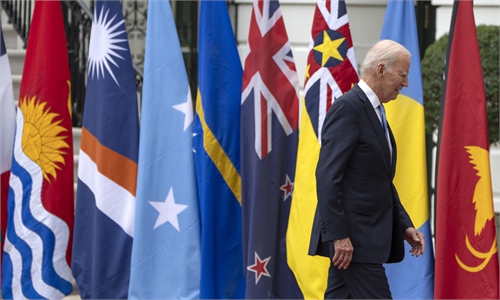
Illustration: Liu Rui/GT
While the US Congress passed a 45-day spending bill at the last minute to avert a government shutdown, anxiety over potential funding shortfalls is growing, which is probably why some segments of Western public opinion have started to express concern over how much Washington can spend on its allies amid the bipartisan budget fight to support its battle for influence with China.A Reuters report said on Thursday that since the stopgap measure that prevented a federal government shutdown does not include approval for some funding programs for Pacific island nations, funding shortfalls may make those nations more receptive to Chinese investment.
With the bipartisan budget battle unresolved, it may seem like a bit of a distraction to bring aid to Pacific island nations and China influence into the discussions. Why is some part of Western public opinion so anxious about aid to the Pacific island nations? The only plausible explanation is the fear that empty promises could cost the US influence in the region when compared with China's economic assistance.
It is China's expanding influence that has put the strategic importance of Pacific island nations in the spotlight. The fact that US President Joe Biden just launched a second White House summit of Pacific island nations in over a year shows the importance Washington now attaches to the region.
But the irony is that the White House announced only $810 million and $200 million in funding aid programs in the region during the two summits with Pacific island leaders, meaning less than $100 million for each island nation on average. This is completely out of keeping with the overwhelming emphasis on the region's strategic importance to the US.
Moreover, unlike China, which has really provided economic and security support to the region on the common basis of seeking mutual respect, mutual benefit and common development, aid from the US is elusive and carries geopolitical purposes. Since the 1970s, China has invested in nearly 500 projects in these island nations, building major infrastructure facilities such as roads, bridges and ports. From 1992 to 2021, trade between China and the Pacific island nations increased by an average of 13 percent annually, according to Chinese media reports.
By comparison, after the first White House summit of Pacific island nations, Washington reportedly renewed agreements this year with Palau and Micronesia that give it exclusive military access to strategic parts of the Pacific. This development explains exactly why it is hard to tell whether US promises of aid will turn into infrastructure or military programs eventually.
If the US aid was also about infrastructure programs, rather than military ones, then it would certainly be welcomed by the international community.
As the world's largest economy, the US needs to assume more responsibility for assisting developing countries. But at a time when the bipartisan fight over the government debt ceiling has become a curse on Washington's spending plan, it is inevitable for its foreign assistance funding to be affected.
Of course, it should be noted that foreign assistance takes a very small portion in Washington's budget. The budget for foreign assistance under the United States Agency for International Development for fiscal year 2024 is $32 billion, accounting for 0.46 percent of the $6.9 trillion federal budget for the same fiscal year.
So it seems that whether US aid can really help recipient countries hinges on how the money is spent. If the US spends most of its aid on arms and military equipment, boosting revenues for its own arms industry, then no wonder Pacific island countries and other developing countries have long been denied assistance they deserve.
China has no interest in competing for influence with any country in the Pacific and would like to see more countries help Pacific island nations with economic development, rather than arms sales or building military bases. China and the US are supposed to promote development in the region together. If the US really cares about the development of island nations, it needs to start with delivering on its promises of economic aid first.
The same logic applies to other Washington efforts to counter China's Belt and Road Initiative, such as how much it will fork out to support the India-Middle East-Europe Economic Corridor.



